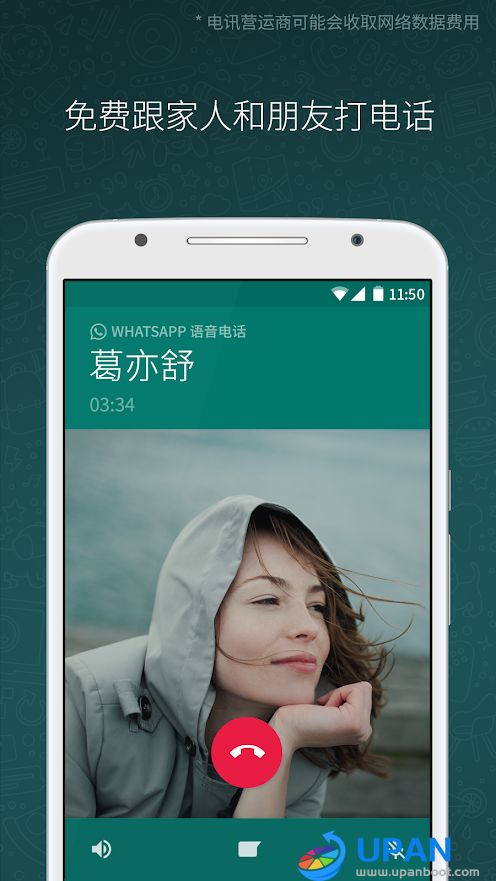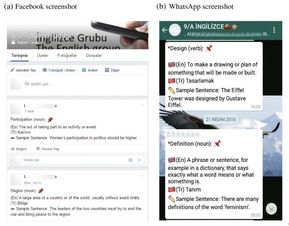Hey there, curious reader! Have you ever found yourself in a situation where you need to communicate with someone from another corner of the world, but you're not sure how to say \WhatsApp\ in English? Well, you're in luck because I'm about to dive into the nitty-gritty details of this popular messaging app's English name and its significance. So, let's get chatting!
The Buzz Around WhatsApp

When it comes to messaging apps, WhatsApp has definitely made its mark. With over 2 billion users worldwide, it's no surprise that the app has become a household name. But have you ever wondered where the name \WhatsApp\ came from? It's a curious tale, really.
WhatsApp was founded by Jan Koum and Brian Acton in 2009. The name itself is a blend of \What's App\ and \HelloSiri,\ which was a feature on Apple's iPhone. The founders wanted to create a simple and easy-to-use messaging app that would allow people to stay connected without any hassle. And voilà! WhatsApp was born.
The English Name: A Global Language

Now, let's talk about the English name \WhatsApp.\ It's a straightforward and catchy name that has become synonymous with instant messaging. But why did the founders choose this particular name?
The name \WhatsApp\ is a portmanteau of \What's\ and \App.\ \What's\ is a colloquial way of asking \What's up?\ or \What's happening?\ It's a friendly and informal way to start a conversation, which is exactly what WhatsApp aims to do. The \App\ part simply refers to the application itself.
The beauty of the name \WhatsApp\ is that it's easy to remember and pronounce in English. Whether you're a native speaker or a learner, you can confidently say \WhatsApp\ without any hesitation. This global appeal has helped the app gain a massive user base across the globe.
WhatsApp in Different Languages

While \WhatsApp\ is the English name, the app is available in various languages around the world. Here's a quick rundown of how \WhatsApp\ is pronounced and written in some popular languages:
- Spanish: WhatsApp (same pronunciation and spelling)
- French: WhatsApp (same pronunciation and spelling)
- German: WhatsApp (same pronunciation and spelling)
- Italian: WhatsApp (same pronunciation and spelling)
- Portuguese: WhatsApp (same pronunciation and spelling)
- Chinese: 微信 (Weixin)
- Japanese: ウェスアップ (wesuapu)
As you can see, in most languages, the name \WhatsApp\ remains unchanged. However, in some languages, like Chinese and Japanese, the name is adapted to fit the phonetic and cultural nuances of those languages.
The Impact of WhatsApp
Over the years, WhatsApp has revolutionized the way we communicate. With its end-to-end encryption, the app ensures that your messages are secure and private. Here are some of the key features that have made WhatsApp a favorite among users:
- Instant Messaging: Send text messages, images, videos, and documents in real-time.
- Voice and Video Calls: Make voice and video calls with friends and family, no matter where they are in the world.
- Group Chats: Create group chats with multiple people to stay connected with your friends, family, or colleagues.
- Status Updates: Share your latest updates, photos, and videos with your contacts.
- WhatsApp Web: Access your messages and chats on your computer.
The impact of WhatsApp is undeniable. It has brought people closer, regardless of geographical barriers. Whether you're catching up with an old friend or coordinating with a team for a project, WhatsApp has become an essential tool for communication.
Conclusion
So, there you have it, the story behind the name \WhatsApp\ and its significance in the world of instant messaging. From its humble beginnings to becoming a global phenomenon, WhatsApp has proven that simplicity and ease of use can go a long way. Now that you know how to say \WhatsApp\ in English, you can confidently join the millions of users who rely on this fantastic app to stay connected with the world. Happy chatting!
